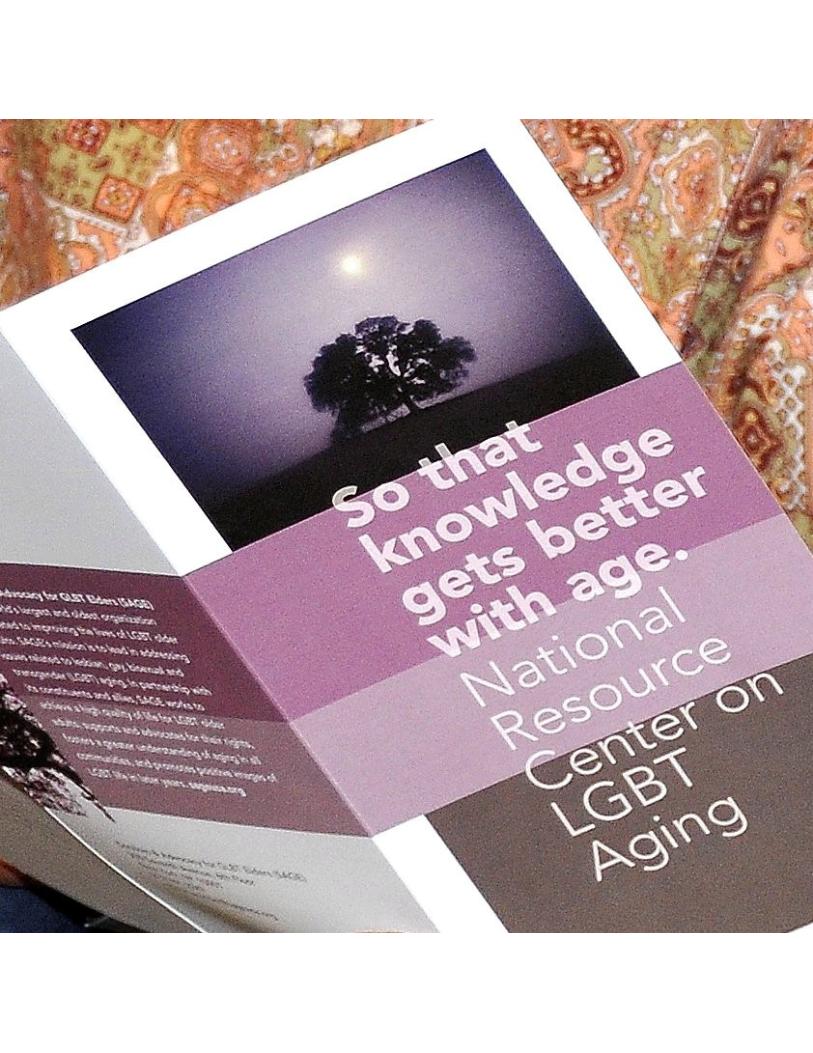LGBT Long-Term Care Issues
June 2011 | Daniel Redman
Lesbian, gay, bisexual and transgender (LGBT) older people in long-term care facilities (along with their families and friends) need to know their rights and the red flags of mistreatment. This article outlines the types of discrimination that LGBT elders may face in nursing homes and discusses a few ways to address the problem.
A recently-published, groundbreaking report—LGBT Older Adults in Long-Term Care Facilities: Stories from the Field—highlights the mistreatment that some LGBT elders may encounter. A broad coalition of LGBT groups led by the National Senior Citizens Law Center released the report. The groups included the National Center for Lesbian Rights (NCLR), Lambda Legal, the National Center for Transgender Equality (NCTE), the National Gay and Lesbian Task Force (NGLTF), and Services & Advocacy for GLBT Elders (SAGE). The report collected information and stories from 769 individuals who responded to an online survey.
Of the total respondents, 328 people reported 853 instances of abuse, including:
- Harassment by residents and staff
- Refusal by staff to accept a medical power of attorney
- Refusal by staff to use preferred name and/or pronoun
- Refusal to provide care
- Wrongful transfer or discharge
Nearly nine in 10 respondents said that they thought long-term care staff would discriminate against someone who came out in a facility; eight in 10 responded that they would expect mistreatment or bullying from nursing home residents; one in 10 reported that nursing home staff had disregarded a medical power of attorney when it was assigned to a resident's partner. Transgender elders in particular reported that they experienced isolation and staff refusal to recognize their gender identities.
Sam, a 51-year-old LGBT rights activist with extensive experience in long-term care, wrote in his response that "LGBT elders...are forced to remain hidden, and when placed in long-term care facilities, become even further isolated." Based on his many years of training staff in long-term care facilities, he said, most staff members and residents "feel that there are no LGBT residents in their facilities."
This is a wake-up call not only to long-term care providers, but also to the LGBT community as a whole. But the situation is far from hopeless. The report outlines several recommendations to change the climate in nursing homes and protect our community.
- Staff training is vitally important. By mandating it, management and other leaders in institutional facilities make clear that anti-LGBT discrimination will not be tolerated. This empowers allies and informs opponents that anti-LGBT bias has no place in the facility. To find an organization to conduct a training a facility near you, contact your LGBT community center, local or state-wide Equality Federation organization, SAGE, or look for resources on the National Resource Center on LGBT Aging.
- In addition, advocates can push for laws mandating training for nursing home personnel and its residents. In 2008, California passed a law that does just that, requiring the Department of Public Health to design and implement regular cultural competency training on LGBT issues. In California and elsewhere, other laws are in development.
- Ombudsman programs must take a stronger advocacy role in protecting LGBT residents by asking specifically about practices and strategies for dealing with anti-LGBT bullying by residents or staff.
- Additional research and data-collection is needed to uncover additional problems LGBT residents face in nursing homes, and—just as important—what strategies, model policies, and programs successfully create welcoming institutional environments.
It is also very important for LGBT elders, their families, and their friends to proactively seek out inclusive facilities. There is no comprehensive list of LGBT friendly long-term care facilities, so it falls on us to investigate. You can do this by asking questions such as:
- Does the facility have an explicit LGBT nondiscrimination policy?
- Does the facility currently employ any "out" LGBT people or currently serve any "out" LGBT clients?
- Have staff members been trained by a local LGBT elder advocacy organization?
- Does the facility display LGBT symbols or literature or include LGBT-welcoming materials among their brochures?
- Are intake forms and marketing materials LGBT-inclusive? (For instance, do forms for new residents include a place to note a same-sex partner?)
- Do they allow same-sex couples to live in the same room? Do these agencies support "families of choice" in their policies and programs (i.e., friends and others who are the main sources of support for many LGBT elders)?
In addition, there are legal protections. At the state and municipal level, LGBT-inclusive nondiscrimination ordinances that cover public accommodations should also cover long-term care facilities. At the federal level, the Nursing Home Reform Act and the Federal Housing Act also may provide protections. State tort laws, nursing home rights laws, and other legal protections also provide important tools for advocates. For an individual case, you should contact an advocacy organization for an assessment.
NCLR's Elder Law Project fights discrimination against LGBT elders through a comprehensive approach that includes litigation, legislative advocacy at the state and federal level, and public outreach—including publications, know-your-rights trainings, and participation in service provider conferences. But we cannot do it alone. If an LGBT elder you care about is facing mistreatment or discrimination in a long-term care facility, please contact NCLR's legal helpline at 800-528-6257 to let us know. You can also contact me directly at dredman@nclrights.org or 415-392-6257 x321.
Read More about the Report
Survey results, comments and personal videos from LGBT older adults can be found, as well as profiles of the authors, at www.LGBTLongTermCare.org.
Daniel Redman joined NCLR's Elder Law Project in 2010 as the recipient of both the Pride Law Fund Tom Steel Fellowship and the Berkeley Law Foundation Fellowship. Daniel leads the Del Martin Memorial LGBT Elder Advocacy Initiative, focusing on discrimination against LGBT elders. He has previously written on LGBT elder issues for Aging Today.

